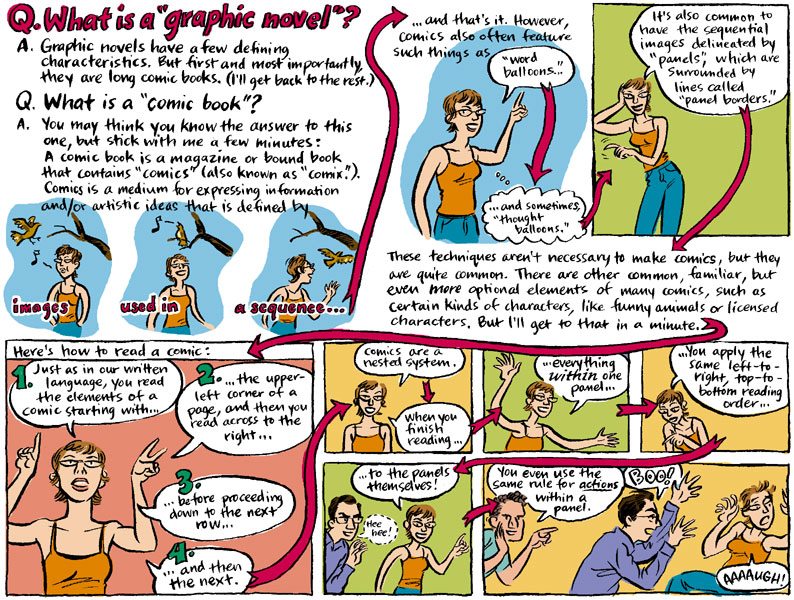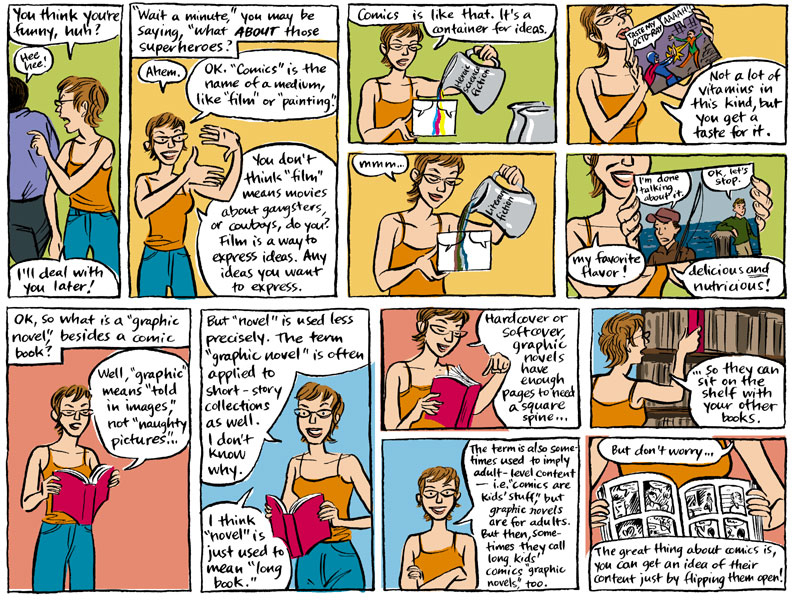

Graphic Medicine is a genre of graphic novels that relate specifically to healthcare and illness. Graphic novels use a combination of text and images, similar to long-form comics. The intersection of graphic storytelling and healthcare is a new and growing avenue for understanding and communicating illness and disease.
Generally, the panels of graphic novels and comic books are read left to right, top to bottom. Below is an introduction to graphic novels created by Jessica Abel and Matt Madden, authors of Drawing words & writing pictures explaining how graphic novels are formatted and how to read them.
Read more here: What Is a “Graphic Novel?”


In this lecture, Michael Chaney argues for the ability of the graphic novel to express complex themes and ideas through the detail possible through visual storytelling. Watch this if you'd like to see some examples from fundamental graphic novel titles to better understand how to appreciate the nuance possible.
The visual format of graphic novels is a great tool to breakdown complex themes and experiences. Graphic novels provide opportunities to teach creatively, process personal experience, and better communicate with others.
Nurse and comic artist MK Czerwiec discusses the benefits of using the comic medium to better communicate and process information. Specifically, how comics can be integrated into teaching methods to understand and breakdown science concepts.
Here, Sam Hester shares the impact comics had as a communication tool when caring for her Mom's deteriorating health. Comics were a tool for both Sam and her Mom to visualize and explain her illness and needs to the care team.